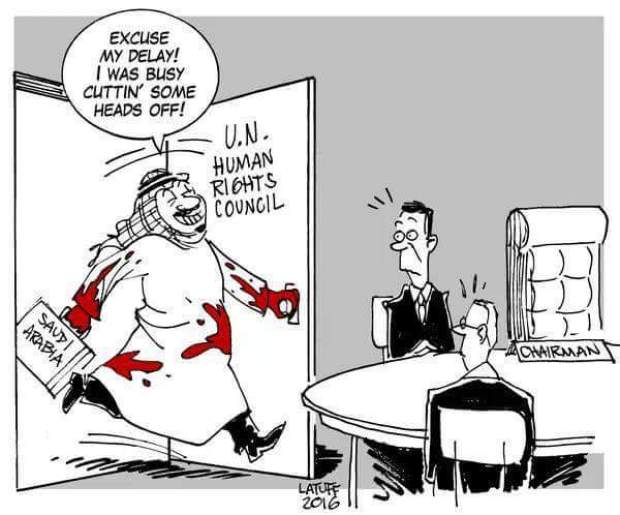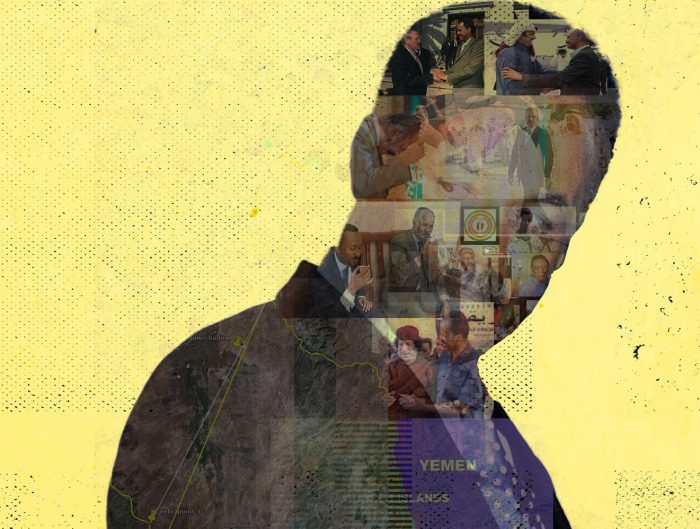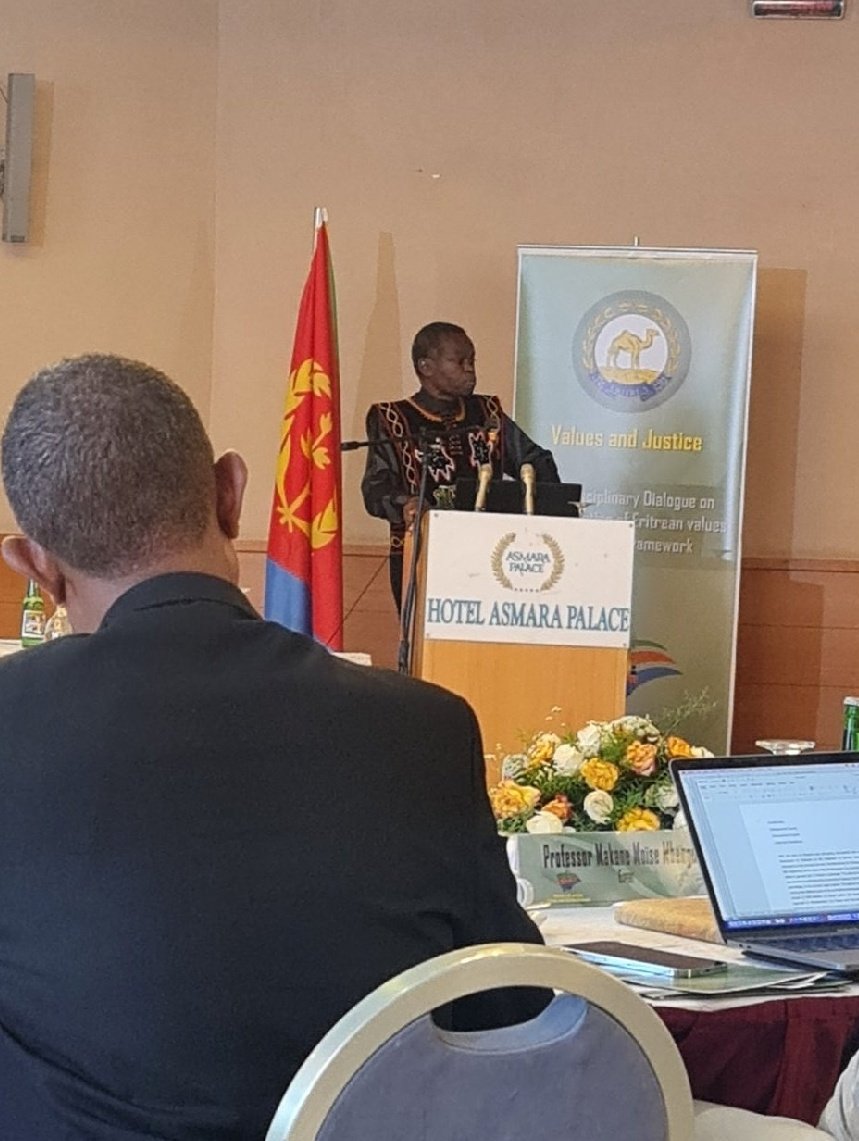The government of Eritrea, which was elected to the Human Rights Council (HRC) by default and in contradiction to the UN’s minimum requirements for a country to join the HRC, has issued an editorial expressing its pleasure and gratitude for being allowed to join this club with no standards.
The government further describes its dismal human rights record as no more than a “challenge” that is routine for all countries. Nonetheless, it claims that it is trying to harmonize domestic legislation [sic] with international standards it is a signatory to.
We have a conundrum.
On the one hand, many of us Eritreans consider the work of the UN’s Human Rights Council’s Commission of Inquiry on Human Rights in Eritrea, to be the most comprehensive, accurate description of the government of Eritrea in its war on the Eritrean people. Many of us consider its conclusion that the government had committed “systematic, widespread and gross violations of human rights” including torture, rape, murder in order to “establish, consolidate and maintain total control over the Eritrean population” to be credible, based on the consistency of the testimonies provided by Eritreans. Further, given the extreme centralization of power in Eritrea, as well as the very high unlikelihood that these crimes are random and unorganized, we find the Commission’s conclusion that it was conducted by “Eritrean officials, including at the highest level” and that they “constitute crimes against humanity” to be persuasive.
On the other hand, the Human Rights Council doesn’t just include barely-countries like Somalia and Eritrea. It includes and included countries like Saudi Arabia, Qatar, Afghanistan, Congo, Pakistan, Rwanda, Burundi, Kyrgyzstan, Ethiopia, UAE, etc. These are not countries noted for their sterling human rights record (they are what Freedom House consistently ranks as Not Free) and their presence has always undermined the moral authority of the Human Rights Council and, by extension, institutions like the Commission of Inquiry as well as the Special Rapporteur.

Thus, whereas HRC (the quasi-legal body), when accepting the report of the Commission of Inquiry on Human Rights in Eritrea “strongly encourage[d] the African Union to follow up on the report and recommendations of the commission of inquiry on human rights in Eritrea by establishing an investigation, supported by the international community, with a view to examining and bringing to justice those responsible for violations and abuses of human rights identified by the commission of inquiry, including any that may amount to a crime against humanity”, the same HRC (the quasi-policital body) has no choice but to accept the recommendation of the same African Union to promote a serial human-rights violator like Government of Eritrea to sit in judgement of the human rights record of other countries.
At this time, it is fair to ask, “hey, weren’t you all gung-ho when the Human Rights Council was condemning the Government of Eritrea? Aren’t you being dismissive of this so-called authority on human rights now that Eritrea has joined it?” The answer is simple: the terrible countries that made up the HRC were absolving the Government of Eritrea even when it was being sanctioned: so they were awful then, and they will remain awful now. But due to the make-up of the HRC, their voices were in the minority. Now, with Eritrea and Somalia and Saudi Arabia, Bahrain, the pendulum may shift a bit towards tyrants. There is no inconsistency: one can say, “I love the NBA” and still say, “Why are the Mavericks still in the NBA?”
So, what can we expect on Eritrea while it sits on the Human Rights Council for the years 2019 through 2021? According to the HRC’s own rules, a Member State will which joins the HRC will undergo the universal periodic review sometime during its 3-year term. The last time the Government of Eritrea was given a list of recommendations, it, like all countries under review, could only give two answers: “accepted” (self-explanatory) or “noted” (which is diplomatic way of saying “hell, no.”) There were 339 recommendations of which Eritrea accepted 156 and noted 183.
Again, a lot of the recommendations are duplicates: saying the same thing using different words. For example, they recommend implementation of the 1997 constitution four different ways. So, in all, there were probably about 100 unique recommendations.
In general, the recommendations that Eritrea accepted deal with cultural and economic rights of Eritreans and, this is important, rights that allow the State to take more rights from citizens. In fact, to the government of Eritrea and its supporters, rights mean “cultural and economic rights” such as school enrollment rates, elimination of disparities in poverty rates, elimination of genital mutilation and corporal punishment.
To the opposition, when we speak about “rights”, we mean, for the most part, civil liberties of the individual: right to due process, freedom of expression, freedom of assembly, freedom of worship, rule of law, freedom from torture, etc. And these are the areas that the government has continuously dismissed by (a) categorically denying that they happen; (b) re-ordering their priorities as secondary to cultural and economic rights and (c) refusing access to any mandate-holder who wants to “come and see.” For example, the Special Rapporteur on Torture has been denied access since 2005. Same with the Special Rapporteur on Human Rights. Same with the Commission of Inquiry.
This is the list of the 47 consolidated recommendations that the Government of Eritrea “noted” (rejected) in the last universal periodic review (UPR):
Recommendation Response
Abolish the death penalty once and for all, sign and ratify the second Optional Protocol to ICCPR Noted
Allow independent monitors access to all known and secret detention facilities within one year Noted
As a first step consider a broad amnesty of remaining political and religious prisoners Noted
Cease arbitrary arrest and detention of people based on their religious beliefs, and review the legal framework governing religious groups and organizations Noted
Charge all other prisoners with a recognizable criminal offence and ensure that they are tried in accordance with international standards Noted
Consider ending the practice of indefinite national service and begin a process of phased demobilization for those who have served for more than the statutory 18 months Noted
Consider establishing an independent national human rights institution in conformity with the Paris Principles Noted
Consider the possibility of ratifying the International Convention for the Protection of All Persons from Enforced Disappearance CED and accept the jurisdiction of the relevant committee Noted
Cooperate fully with the Working Group on Enforced and Involuntary Disappearances Noted
Create a more favourable environment for a stronger civil society in the country, including guaranteeing the full legitimacy for human rights defenders to spare them from the harassment they had to face so far and establish closer links with international human rights non-governmental organizations Noted
Criminalize all acts of sexual violence and rape in marriage Noted
Dismantle the special courts and transfer all cases to the criminal courts or high courts, to comply with human rights obligations regarding fair hearings and due process Noted
Ensure that arrested persons have adequate access to legal representation and to establish effective judicial oversight over police and security forces Noted
Establish rules that limit preventive custody in the absence of formal criminal charges Noted
Expeditiously and fully implement the Constitution adopted in 1997 and strive for earliest adoption of a penal and criminal procedure code as well as a civil and civil procedure code in accordance with international standards and provide clearly in new legislation for freedom of expression, assembly, movement and belief Noted
Extend a standing invitation to all special procedures and give a positive response to pending visits of Special Rapporteurs on freedom of expression, freedom of religion and the right to food and the Special Rapporteur on torture Noted
Grant the request made by the Special Rapporteur on torture in 2005 and 2007 to visit the country Noted
Inform the international community of the conditions of the G11 and other political, media and religious detainees and grant access to them by an international organization to ascertain their conditions, and make clear the charges against them and the legal process to which they will be subjected Noted
Investigate all pending complaints about enforced or involuntary disappearances and have their perpetrators punished Noted
Investigate allegations of extrajudicial killings, torture and other cruel and inhuman or degrading treatment and bring perpetrators to justice Noted
Invite the special procedures mandate-holders who requested to visit the country Noted
Issue immediate and clear public orders to security forces to cease arbitrary arrest, detention and torture on the basis of religion or belief Noted
Look to ensure the avoidance of national service conscripts being used as forced labour for private enterprises and to end the recruitment of children under the age of 18 into military service and training Noted
Make a concerted effort to prevent the use of child soldiers in its recurrent armed conflict Noted
Provide unlimited access to the International Committee of the Red Cross to all detention facilities in the country Noted
Recognize the right to conscientious objection to military service and reinstate the alternative civilian national service Noted
Release anyone detained without charges Noted
Respect international standards of law in the treatment of prisoners Noted
Respect the right of any individual to practice his or her religion of belief without any restriction Noted
Take all necessary steps to ensure the full enjoyment of the right of all persons to take part in the Government of his or her country Noted
Take all possible measures to prevent the recruitment and torture or cruel and degrading treatment by the police and military of children Noted
Take further measures to ensure full respect for freedom of expression and of the press in accordance with its international obligations, including ICCPR, to which Eritrea is a party Noted
Take measures to ensure the prompt release of persons detained for exercising their freedom of expression or as a result of their political views Noted
Take the measures necessary to fully respect the right to freedom of opinion and expression, including by introducing a law to allow independent media and enable journalists to exercise their profession freely Noted
Treat all detainees humanely and immediately release all prisoners detained without charge or trial or opportunity for appeal Noted
Unconditionally release all prisoners detained solely because of their political, religious or other conscientiously held beliefs Noted
Within the framework of a broad political dialogue, facilitate the participation of all sectors of the society in the political process, including through support for the independence of the judiciary and the press and freedom of expression and assembly Noted
Sign and ratify the Convention against Torture and Other Cruel, Inhuman or Degrading Treatment or Punishment and the International Convention for the Protection of All Persons from Enforced Disappearance and the Optional Protocols to ICCPR Noted
Reform the electoral system and organize periodic and genuine multi-party elections, in accordance with international democratic standards Noted
Fully implement Security Council resolution 2023 of 2011, which condemns Eritrea's use of the "diaspora tax" to destabilize the Horn of Africa region and violate the sanctions regime Noted
Cooperate with OHCHR, allow access to an OHCHR mission to Eritrea, as requested by the High Commissioner for Human Rights, and accept the visit requests made by five special procedures mandate holders Noted
Cooperate fully with the Special Rapporteur on the situation of human rights in Eritrea Noted
Provide unlimited access to the International Federation of Red Cross and Red Crescent Societies to all detention facilities and provide independent monitors to access all Eritrean detention facilities, in particular the Djiboutian detainees, and ensure that international standards of law in the treatment of prisoners are respected in Eritrea Noted
Lift severe restrictions on freedom of expression, both online and offline, and take concrete measures to protect journalists and media workers from violence and arbitrary detention without an official charge Noted
Put an end to the obligation for children to follow their last year of school in the military camp of Sawa Noted
Ensure safe repatriation and reintegration of Eritrean nationals without any fear of persecution in accordance with Eritrea's obligations under international human rights law and allow for international monitoring Noted
Take further measures to ensure protection of property rights, pursuant to international standards, including the provisions in articles 14 and 21 of the African Commission on Human and Peoples' Rights and article 5 of CERD Noted
Will Argentina, Austria, Bahamas, Bangladesh, Bulgaria, Burkina Faso, Cameroon, Czech Republic, Denmark, Fiji, India, Italy, Togo, and Uruguay prevail upon Bahrain, Eritrea, Philippines, Somalia, and Saudi Arabia? I think that’s an easy call: yes. The same UPR will be produced. Will the government of Eritrea, now invited to the club, feel compelled to respond favorably to this engagement? Don’t hold your breath: it is not in its nature. If it is going to sign its death warrant, it wants to sign it very slowly. The difference is, whereas, in the past, its all-purpose reason for not treating its people humanely was the lack of demarcation and the state of war with Ethiopia, now it is going to be lack of capacity, sanctions and the importance of “consolidating the peace.”
Still, despite the rogue states who don’t belong in such an esteemed club, the HRC is still a force for good. At the very least, there will be one body that holds the Government of Eritrea accountable. And that’s one more than the accountability-tool the people have.





Leave A Reply